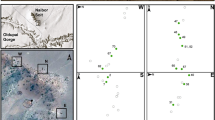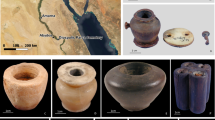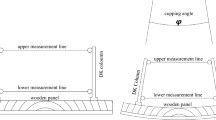Abstract
IN NATURE, vol. xix. p. 373, a remark of Dr. Hamy, of Paris, is reproduced, concerning “the fate of Cook's collections in being buried in an Austrian museum”. It will be of general interest to make known that, what there is in Vienna of ethnographical objects in relation to Cook, consists of 260 numbers, chiefly originating from Cook's third voyage. These objects were bought by order of the Emperor Franz in the year 1806, at the auction of the Parkinson Museum in London (previously Lever Museum), and now form part of the large ethnographical collections, which will be accessible to the public in a few years in the new, nearly completed, Imperial Natural History Museum of Vienna. This museum will become one of the greatest and most complete on the continent, uniting all mineralogical, geological, palæontological, prehistoric, anthropological, ethnographical, zoological, and botanical imperial collections of Vienna under the charge of Prof. Hochstetter.
This is a preview of subscription content, access via your institution
Access options
Subscribe to this journal
Receive 51 print issues and online access
$199.00 per year
only $3.90 per issue
Buy this article
- Purchase on SpringerLink
- Instant access to the full article PDF.
USD 39.95
Prices may be subject to local taxes which are calculated during checkout
Similar content being viewed by others
Author information
Authors and Affiliations
Rights and permissions
About this article
Cite this article
MEYER, A. Cook's Collections. Nature 19, 409 (1879). https://doi.org/10.1038/019409a0
Issue date:
DOI: https://doi.org/10.1038/019409a0



